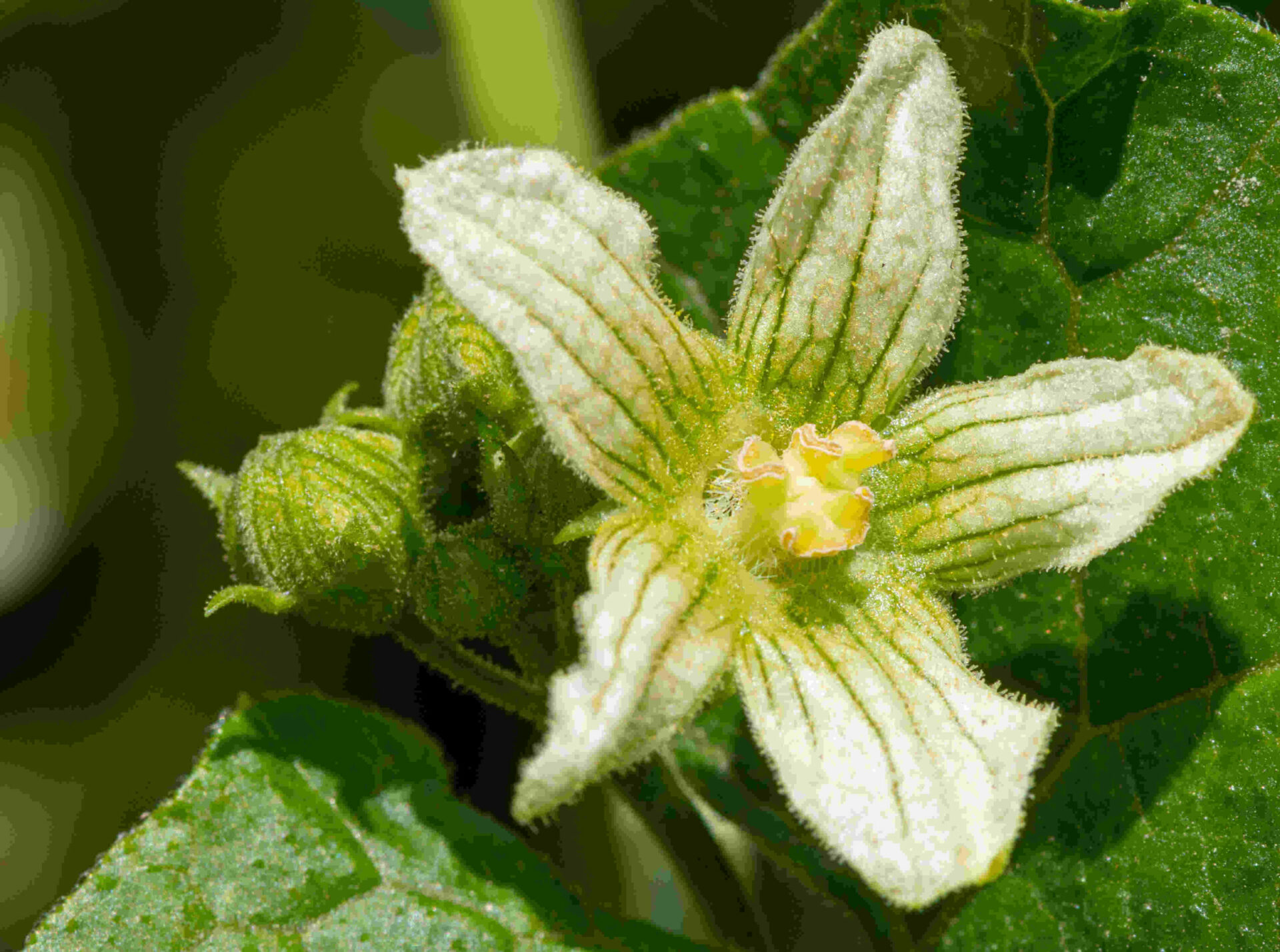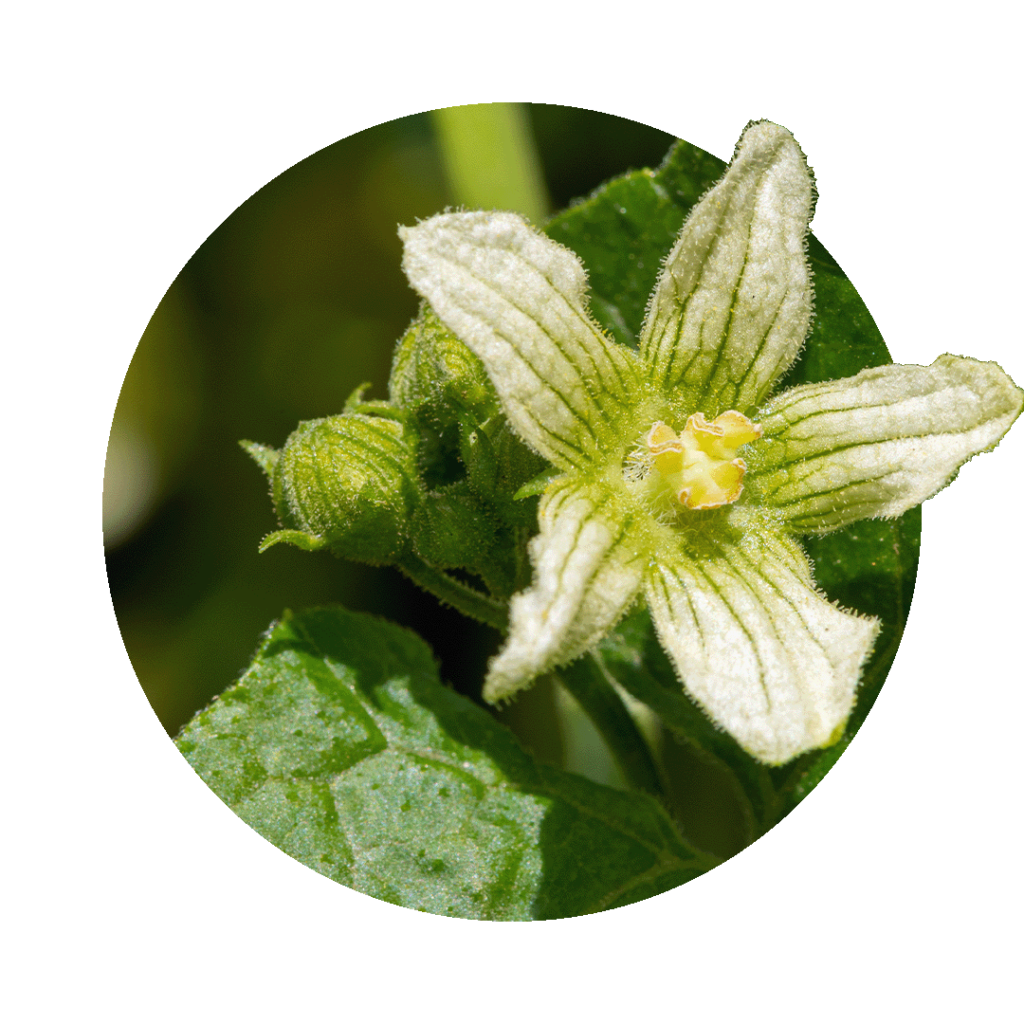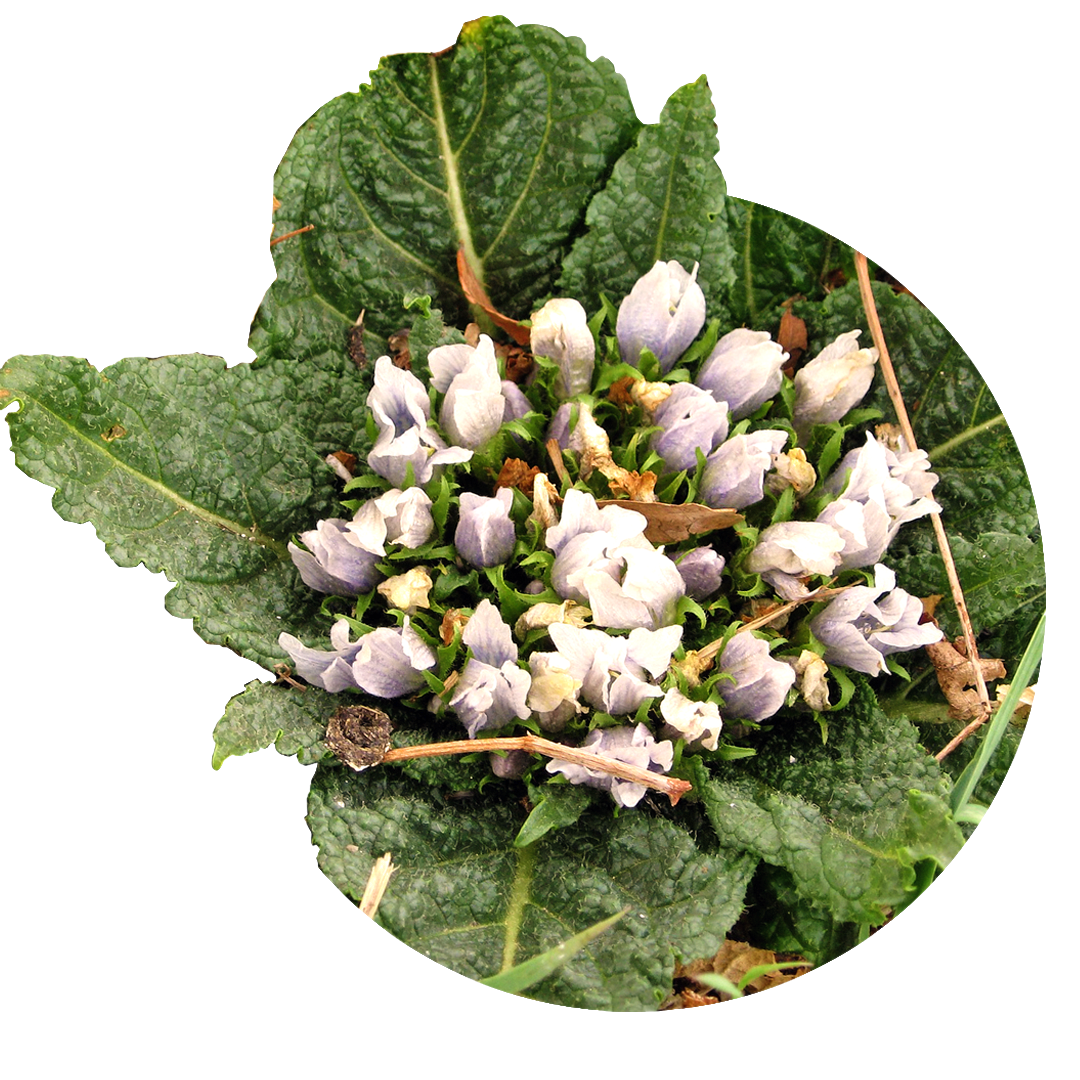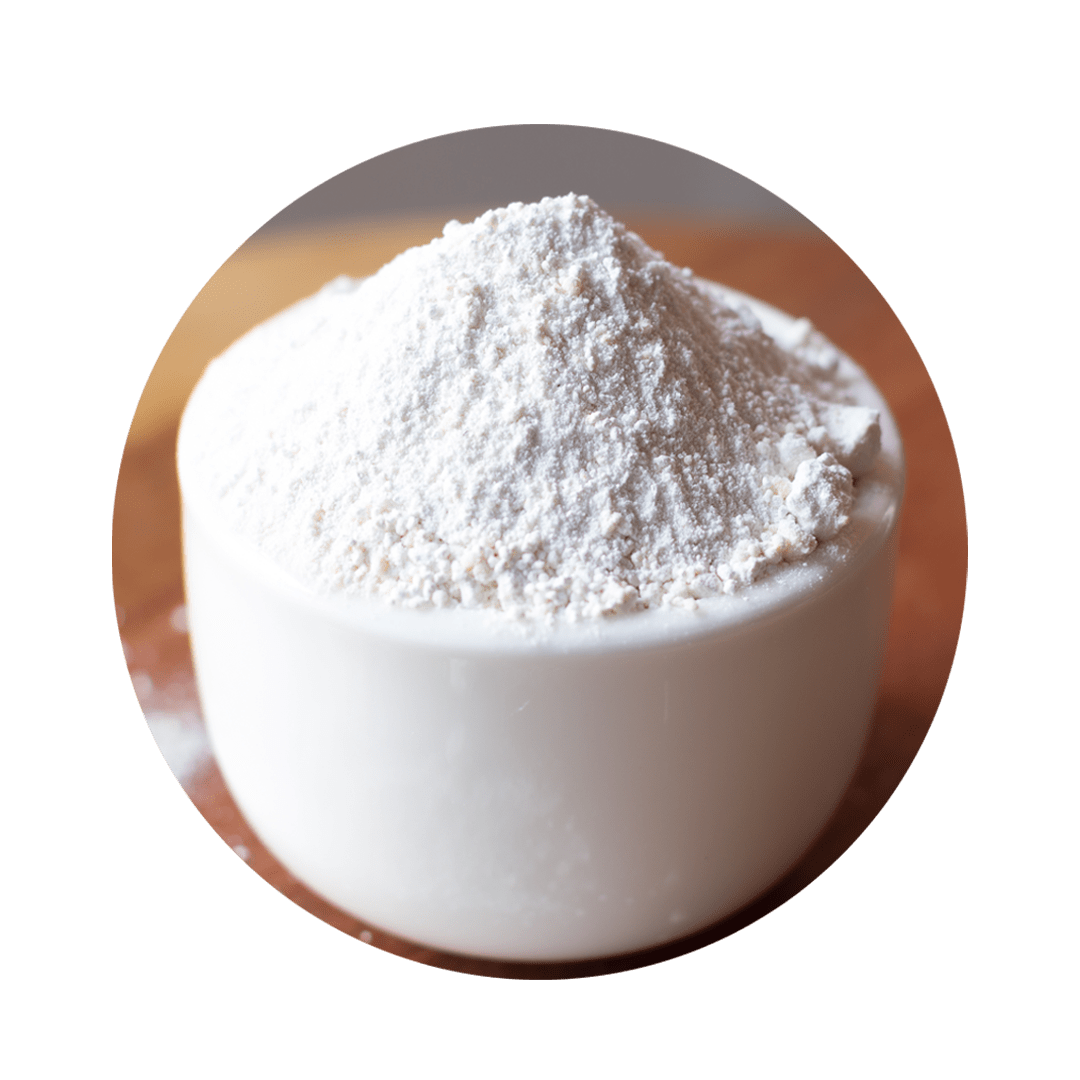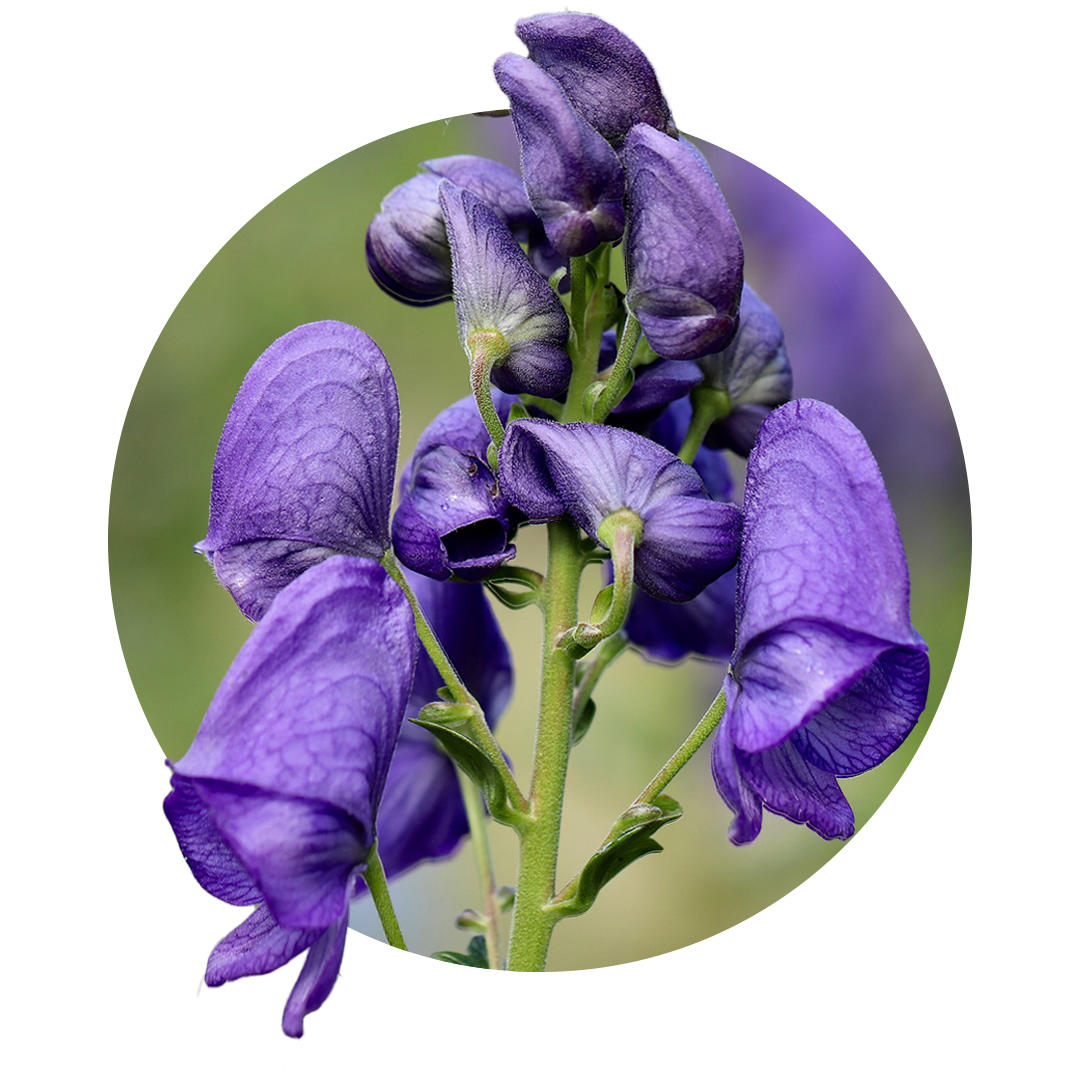Fence beet: Indispensable & natural medicine
Bryonia alba is considered a polychrest in modern naturopathy and homeopathy. Hundreds of symptoms and recommendations for use are described. Yet today it is only prescribed as a homeopathic or spagyric preparation in mixtures or as a single remedy. The reason is its high toxicity and the resulting problem with dosage. Its main uses today are heated inflammations of mucous and serous membranes. As a gout remedy it is so famous that this use has even resulted in a nickname.
Facts about the fence beet
Did you know that...
... the Bryonia root was often sold as fake mandrake in the Middle Ages?
... the name of the plant refers to its strong tendril properties?
... people used to fill beer into the hollowed root and then drink that as a laxative?
What is fence beet?
The fence beet is a climbing plant from the cucurbit family that grows up to 5m high. It forms a very strong, white root, which is mainly used in medicine. This root can grow up to 3kg and is usually harvested for further use only after a few years. Its leaves are 3-5-limbed and resemble those of Norway maple in shape. The leaf edges are strongly serrated. The leaf axils give rise to inflorescences, which produce no, yellow-white flowers only a few millimeters in size. The pea-sized fruits are characteristically black, distinguishing it from other Bryonia species. It is native to southeastern Europe as far as Iran. In our country, however, it has been established as a cultivated plant since ancient times.
General and medicinal properties of Bryonia alba
The basic knowledge
Anti-inflammatory
Bryonia is anti-inflammatory. Especially in diseases of the gouty-rheumatic type, fine membranes in the body become inflamed and cause massive pain. The active ingredients of bryonia help these inflammations to subside quickly.
Immunostimulant
Bryonia is immunostimulant. It stimulates the body's immune system to better fight against infections. The duration of the infection is shortened and the course is weakened.
Laxative
Bryonia is laxative. It stimulates the peristalsis of the intestines and thus promotes the elimination of bowel movements. In fine, homeopathic or spagyric preparation this is still used today.
Bryonia alba: Ingredients
The Bryonia contains some very strong bitter substances, which develop their effect in the body.
- Curcurbitacine
- Triterpenes such as bryonic and brynolic acid
- Ribosome activating proteins such as bryodin (cytotoxicity).
Fence beet: effect for body and mind
The effectiveness of the fence beet goes back to its mixture of highly potent ingredients. Therefore, until the Middle Ages it was used for many diseases of the gastrointestinal tract, rheumatic complaints, epilepsy, paralysis and many others. Since the toxicity of the plant causes a very narrow therapeutic range, many patients have died from the therapy. These days it is therefore only used in highly diluted homeopathic preparations or as a spagyric medicine. It still has a relaxing effect on the intestine and thus reduces the time of intestinal transit. It drains. It is also strongly anti-inflammatory, which is why it is used to treat rheumatic diseases of the musculoskeletal system or to treat colds of the respiratory tract. It reduces mucus production and, due to its anti-inflammatory effect, also the occurring functional restriction of the diseased tissue.
Properties of Bryonia alba
- Anti-inflammatory
- Mucus reducing
- Laxative
- Anti-tumor
- Immune activating
- Antirheumatic
Fields of application in naturopathy
[Bryonia alba]
The mixture of diverse ingredients and the effect on various metabolic systems of the body result in a number of different indications for which the barnyard beet should be thought of as a therapeutic agent.
Fence beet for constipation
The fence beet contains a mixture of many bitter substances. These activate the intestine and increase its peristalsis. It thus moves faster and transports the stool it contains more quickly to the outside. The intestinal passage is thus shortened and the tendency to constipation is reduced or even eliminated.
Bryonia alba for respiratory infections
In most respiratory infections, the mucous membranes are affected and become inflamed. This causes them to swell and produce more mucus, which must be coughed up. Zaunrüber inhibits the inflammation here and reduces the production of mucus. The airways become freer and can thus regenerate better and overcome the infection faster.

Fence beet for flu-like infection
In flu-like infections, the affected person is usually infected with a virus that affects the respiratory tract and leads to coughing, runny nose and increased temperature. Bryonia inhibits the inflammation of the respiratory tract and makes the mucous membranes swell again, so that the symptoms of the flu-like infection decrease.
Bryonia alba for tendon & joint inflammation
Bryonia alba has an anti-rheumatic effect. Sight and joint inflammations also belong to rheumatic inflammations. In this case, structures in the body swell up and cause pain, limiting mobility. With the help of Bryonia alba, this inflammation recedes and movement becomes possible again without pain.
Fence beet for lumbago
In lumbago, muscle tissue and fascia become inflamed and cause a sudden, sharp, rheumatic pain. Bryonia now acts against this rheumatic inflammation and thus relieves the pain. The patient can move better and the muscles regenerate faster, so that unrestricted movement becomes possible again.

Fence beet for headaches
Headaches are often caused by inflammatory irritation of fine membranes in the head. Bryonia helps here to contain the inflammation, so that these cuticles calm down again and the pain goes away.
Bryonia alba for rheumatic diseases
Rheumatic inflammation is usually referred to when the musculoskeletal system is affected. This can happen in the context of lumbago, a gout attack or an irritation of the intervertebral discs. In this case, joints swell, ache and have limited mobility. Bryonia inhibits messenger substances that mediate this inflammation and thus directly addresses the cause. The swelling goes down and with it the functional restrictions.
Fence beet for dry cough
In dry cough, the inflammation of the tissue is in the foreground. The production of mucus and sputum are therefore low. Bryonia alba inhibits the inflammation of the tissue, the blood circulation decreases, the tickling and the irritation of the cough weaken.
Bryonia alba for sore throat
When a sore throat occurs, the mucous membranes of the throat become infected and inflamed. The mucus-producing cells thus produce more mucus and the throat burns. Bryonia inhibits inflammation in this area and leads to a decrease in mucus production. The burning sensation disappears and swallowing is again painless.
Notes on the use of fence beet
Bryonia alba is used only as a spagyric or homeopathic preparation. Mostly it is a component of a mixture. There are preparations for oral intake as drops, tablets or sprays, but also injectable preparations are available on the market. Fence beet is an acute remedy and is used only for the treatment of acute events. In this case, multiple application during the day is common.
Bryonia alba during pregnancy & lactation
In principle, consultation with a therapist should always be sought when using Bryonia alba during pregnancy and lactation.
Attention toxic!
Bryonia alba as a plant is highly toxic, which is why phytotherapeutic use is not common. Therefore, nowadays, only diluted Hömöopathic or spagyric preparations are used.

Get your fenugreek complex now and use the healing power of Bryonia alba
Fence beet complex
100% Fence beet for spraying!
24,99€
incl. VAT, base price: 24,99 € / 30ml
Use the healing power of fenugreek and our other 100 medicinal plants to naturally alleviate your ailments. Improve your well-being and support your body, mind and soul! With the help of our Configurator Your personal spagyric spray that is tailored to your needs and accompanies you on your natural path to improving your body, mind and soul.

